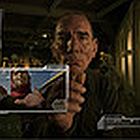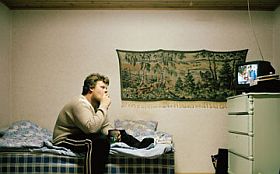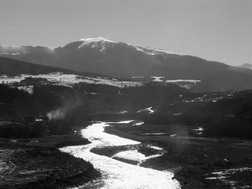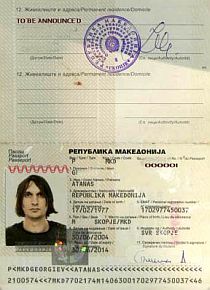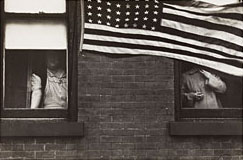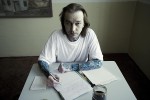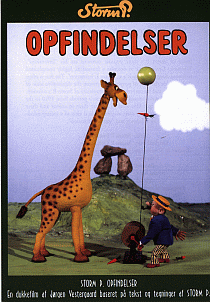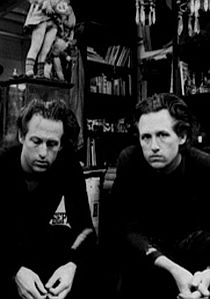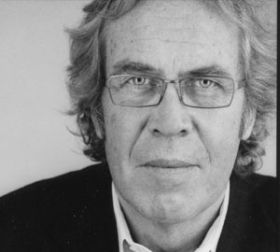I min filmklub i FOF-Randers i aften skal vi snakke om Westerlunds film. Jeg vil forsøge mig med at sige, at den som hendes tidligere film er sat af i kunstneriske undersøgelser, frem for ønsket om at fortælle en historie. I The last Stranger, 1998 er det en undersøgelse af slægtskabet over kulturens grænser, i If I give you my Humbleness, do’nt take away my Pride, 1999 af vreden og attråen mellem kvinden og manden. Filmene er undersøgelsesresultater, rapporter i form af konstruktioner som arkitektur og skulptur. Karin Westerlund er jo også billedhugger.
I Gud, lugt og hende vil hun undersøge religionerne, hvad er de gode for? Og så vil hun undersøge lugten. Er der sammenhæng? Karin Westerlund aner det. Og hun sætter sig selv som hvid kvinde ind som filter midt mellem den europæiske kultur (Sverige, Island, Irland og – Barcelona..) og den mellemøstlige, som hun kender så godt (Ægypten), og den asiatiske (Indien), som hun har besøgt under researchen og vendte tilbage til under optagelserne. Midt mellem de religiøse systemer, mellem de flere sæt lugte og mellem de tilhørende kvindeidealer og opfattelser af det mandlige. Hvad, der filtreres fra, blev først til manuskriptet, senere til filmen.
Meget materiale forsvandt undervejs. På en tidlig optagelse ser man en mørktklædt mand, som sidder på en stol foran en mavedanserinde. Det er biskop Thomas fra den koptiske kirke. Så nær har han ikke tidligere været en kvinde. Og scenen er uden tvivl strengt forbudt i Ægypten. Måske var det vanskeligt at gøre den usynlige viden synlig i scenen.
Dens blide ironi er måske erstattet af det samme i filmens allerførste scene. En forretningsmand fra Delhi binder omhyggeligt og alvorligt og langvarigt sit vigtige, vigtige hovedtøj. Et tørklæde til en mand så kompliceret. Noget mere indviklet end selv den mest sindrige europæiske slipseknude, som i film efter film har markeret måske samme betydning.
En fortællende forfatter er med i det tidlige materiale, Mohamed Sid Ahmed, fremragende filosof og skribent i Cairo. Fast kommentator ved Al Haram Weekly. Han er vist ikke i den endelige film. Men en digter er der, og en mere. Og et stort malerisk hus i Cairo. Det rummer en skøn trappe, som bliver mønster for og skelet til den filmiske konstruktion, og det er desuden den akse, hvorom tingene decentreres. Instruktøren har udviklet sin egen defokusering. Sådan skildrer hun det usynlige, som måske er det usagte.
Karin Westerlund laver bemærkelsesværdigt anderledes dokumentarfilm. Jeg ser to af dem som forarbejder til dette projekt. I The last Stranger gennemprøves i sekvenser af krydsklip, her som parallelle tankegange, den store sammenlignende antropologi, i If I give you my Humbleness, do’nt take away my Pride, gennemprøves i den ægyptiske ørken en lang erotisk magtpsykologisk scene med to skuespillere. Jeg ser den også som eksempel på den række spillede scener, den nye film har fået lagt ind. Således blev de to hovedgreb i Gud, lugt og hende gennemprøvet.
Det er dog også en klassisk dokumentarfilm bestående af reportage og samtaler med instruerede afsnit og samlet udgør konstruktionen et muntert-alvorligt moralfilosofisk antropologisk essay.
Karin Westerlund var og er blandt de bedste bud på en mulighed for afgørende fornyelse af dokumentarfilmen, ikke så meget i kraft af de indlagte spillede scener som ved manuskriptets og forberedelsernes løfte om en original og tænksom filmisk antropologi, løfter, som er indfriet punkt for punkt efterhånden, som instruktørens afvinklede punkterne i de smukke og særprægede skudlister. Westerlund har lavet en klog film sammen med denerfarne producere, Anita Oxburgh fra Migma Film i Stockholm og Vibeke Windeløv fra Zentropa. Og sammen med Gunilla Röör, hovedkraften.
Jeg har været i det lykkelige held trin for trin at kunne følge den første del af Westerlunds arbejde med filmen. Det var opløftende og lærerigt. Filmen begyndte i skrivningens tankearbejde. Det førte til manuskripter, som satte og fortsat burde sætte en ny norm for dokumentarfilmmanuskripter. Først var det måske mere tegninger end ord. Det bestod af skitser, interviewfragmenter, fotografier, videooptagelser og rejseoptegnelser sammentrængt i et godt 40 sider stort treatment. Et treatment af betydelig kunstnerisk kvalitet. Dertil en pilot på tre minutter, som var redigeret af en række researchoptagelser i Cairo. Pilot og treatment rummede allerede en høj grad af afklaring, tegnede en tydelig begyndelse på en mulig film. Herefter fulgte en afprøvning af, om et tilsvarende materiale på disse kunstneriske konditioner kunne opspores i Indien, Island og Irland.
Karin Westerlund har altså arbejdet på den måde, at hun har samlet på scener, som hun måske, måske ikke kunne bruge i filmen. Afprøvningen af det meget store filmprojekt er foregået ved disse researchrejser. Som for de efterfølgende locations vedkommende har afsat et materiale svarende til Cairomaterialet.
Det endelige manuskript er nok det smukkeste og klogeste, jeg har nogensinde har læst. Det er en målrettet udvikling og udbygning i sin endelige udformning. Alt materiale, jeg undervejs fik kendskab til, er brugt på den ene eller anden måde, ingen af de oprindelige positioner er forladt. Alle bebudede afsnit er skrevet ind i et overbevisende forløb. Og nu flere år efter er det så alt sammen optaget, klippet og færdiggjort til en forbavsende film, som altså hele vejen kunne forudses, så den ikke burde overraske.
Fotografiet er fra sidste optagedag. Fra location i Ægypten, ved sfinxen. Den gennemgående medvirkende Gunilla Röör og instruktøren sammen. Det er skuespilleren forrest til venstre. I filmen store scene 2 slås det eftertrykkeligt fast, at instruktøren, som jo også er billedhugger, og skuespilleren, som er billedhugger i scenen, er én og samme kvinde. I denne scene 2 er det manden, det går ud over. Han er europæer. I andre scener hyldes han. Oftest i de fremmede, intense og dybere kulturer. Der er han smukkest..



